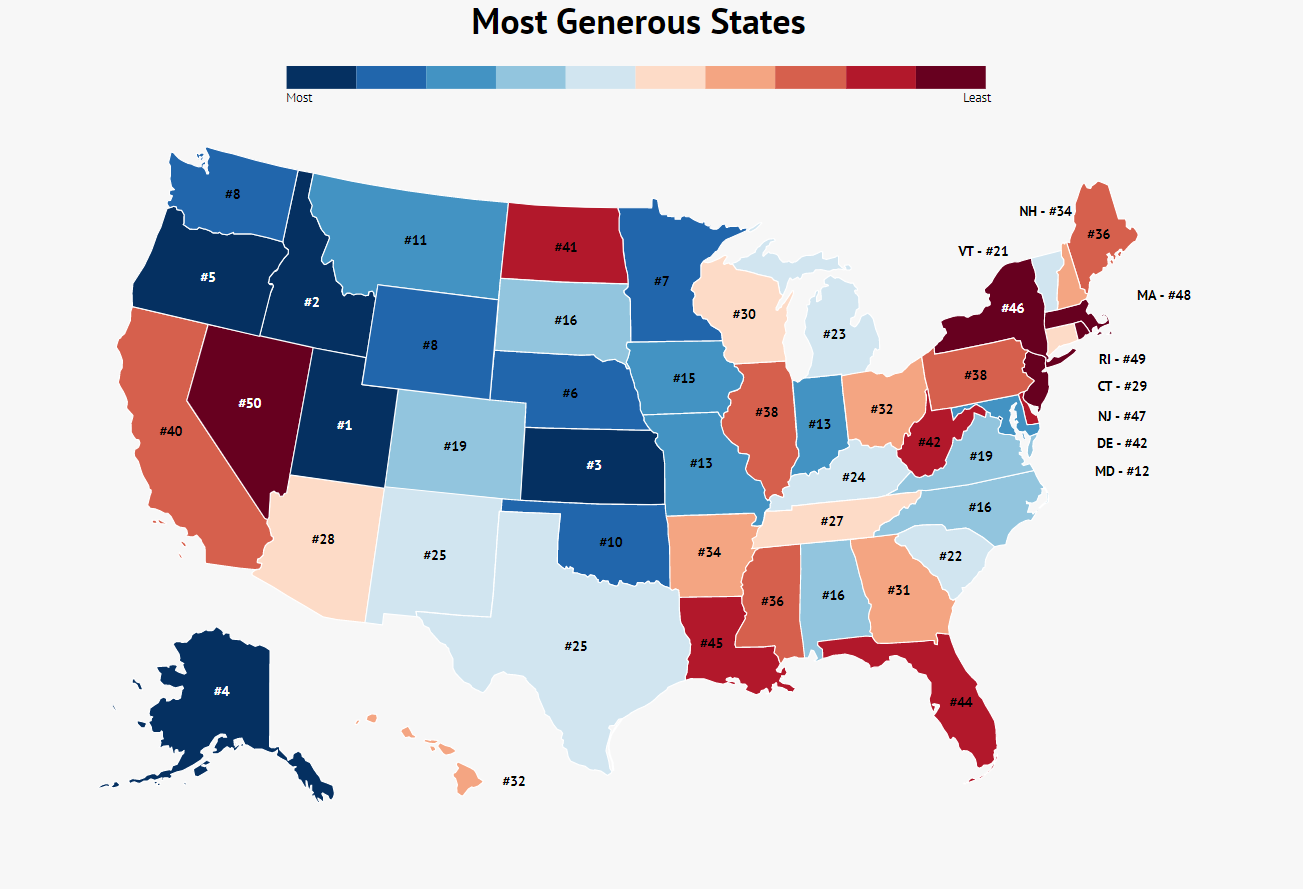
This story originally appeared on Stacker and was produced and distributed in partnership with Stacker Studio.
The most generous states
Americans gave approximately $449.64 billion to charities in 2019, according to Giving USA's 2020 report. That number comes from donations from individuals, bequests, foundations, and corporations, but individual giving is by far the largest source of donations, responsible for $309.66 billion of the total.
While the effects of the COVID-19 pandemic were expected to reduce the volume and amount of 2020 charitable donations, it's possible the opposite happened. While we're still waiting for the whole picture of charitable giving to emerge from 2020, available data suggest that, unlike in other economic downturns, Americans responded to the COVID-19 crisis by giving at similar or higher rates than in previous years. Additionally, a 2009 study found that poor people, who on average donate more per capita than those with higher incomes, are actually still more generous with donations even during economic downturns. Of course, the scope and scale of the COVID-19 economy are dire—but there's every possibility that as unemployment and economic precarity increase, so too will charitable donations. Americans, especially poor Americans, are very generous.
A significant amount of Americans also volunteer. Like charitable donations, volunteering is on the rise: 77.34 million adults (30.3%) volunteered through an organization, with millions more engaging in more informal volunteering through supporting family and friends (43.1%) and doing favors for their neighbors (51.4%), according to the 2018 Volunteering in America Report. In the year of the study, Americans volunteered almost 6.9 billion hours, equal to $167 billion in economic value. Parents volunteer at a high rate, with working mothers volunteering more time than any other demographic, at a rate of 46.7%. And Gen Xers had the highest volunteer rate at 36.4%, while the baby boomer generation volunteered the most hours (2.2 billion).
To determine which states are the most generous, Zippia examined these two hallmarks of generosity: giving money and giving time. To determine each state's monetary generosity, Zippia used Chronicle of Philanthropy data of percent of income donated to charity. The metric of time is broken into two data points: the percent of state residents who volunteer, and the average hours spent volunteering every year. Each of those metrics comes from data from The National Service.
Each metric is included in the ranking. Midwest and Western states dominate the top 10 most generous states. Despite its official nickname as "the volunteer state," Tennessee is not in the top 10 states to volunteer. The moniker actually comes from the high number of Tennesseans who volunteered to fight in the War of 1812.
Read on to find out if your state is one of the most generous states in the U.S.
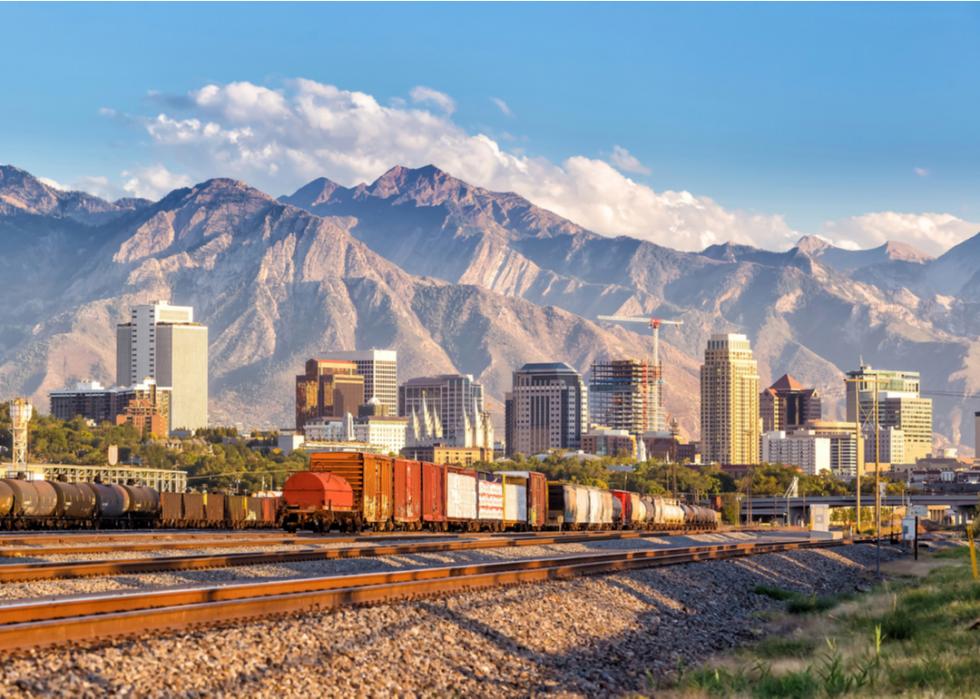
#1. Utah
- Percent of income donated: 10.6%
- Volunteer rate: 46%
- Average volunteer hours: 81.9
Utah is by far the most generous state, coming in the top spots for all three metrics. The state has a culture of giving, part of which stems from the presence of the Mormon faith: The religion cultivates a high level of engagement with its members, including donations and volunteering. Some of that effort goes toward the church, but it is certainly not exclusively religious in nature. With more than 60% of the state's residents identifying as Mormon, the faith's emphasis on civic engagement translates to a lot of volunteering and charitable giving.
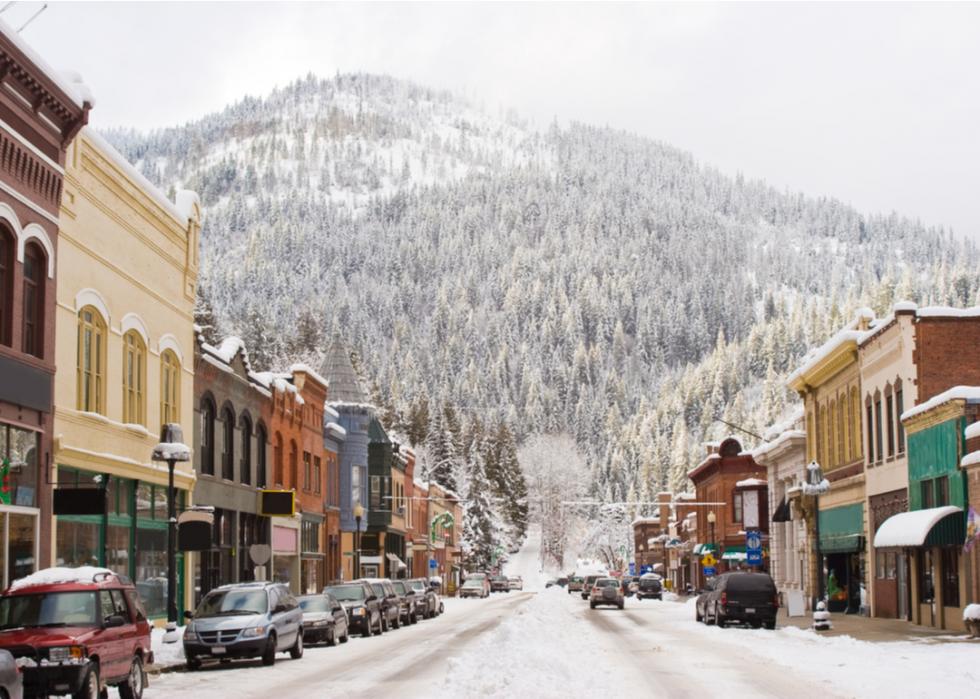
#2. Idaho
- Percent of Income Donated: 6.4%
- Volunteer Rate: 35%
- Average Volunteer Hours: 57.4
Idaho saw a huge influx in new residents in 2020 due to the COVID-19 pandemic, experiencing the most in-bound moves in the nation, according to moving company United Van Lines' annual study. And no wonder: with its cheap cost of living, outdoor-oriented culture, and abundant pristine natural beauty, Idaho is the perfect place to ride out the quarantine and isolation that comes with the pandemic. Slightly more than 26% of its new residents cited "lifestyle" as the reason to move, and more cited family and retirement as the impetus to settle in the Gem State. Coming in second in the nation for generosity, new residents will be entering a culture that places a high value on charitable giving and volunteering, which can go hand-in-hand with appreciating the state's great outdoors—opportunities abound for volunteering around the ecological work necessary to build and maintain the state's rugged beauty for all to enjoy.
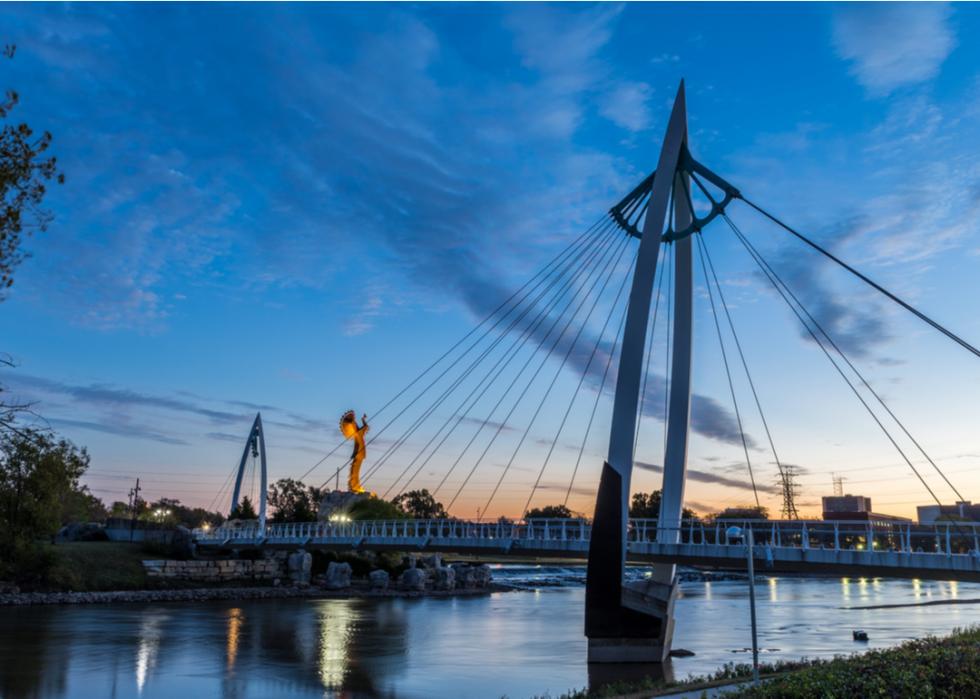
#3. Kansas
- Percent of income donated: 4.8%
- Volunteer rate: 38%
- Average volunteer hours: 44.7
Kansas may be third in terms of generosity on this list, but it's gunning for the top spot—Volunteer Kansas' mission statement is to climb the ranks to claim #1 in terms of volunteering across the nation. The nonprofit connects volunteers with opportunities in the Sunflower State, ranging from children, education, and bullying to animal welfare, environmental issues, and health.
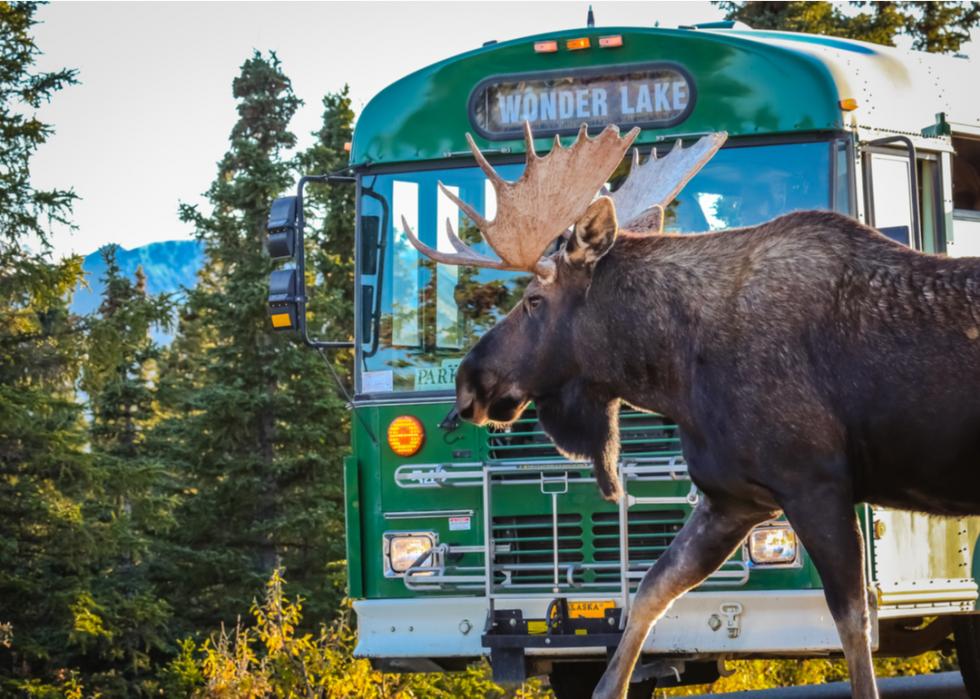
#4. Alaska
- Percent of income donated: 4.3%
Volunteer rate: 39%
Average volunteer hours: 53.1
Alaskans take volunteering seriously, with an estimated 22,054 volunteers giving 24.6 million hours of service in 2018, according to Serve Alaska. The Last Frontier has some unique options for volunteering, too. The iconic Iditarod sled dog race relies on volunteers to staff and coordinate and work the event over more than 1,000 miles of race trails, and there are many opportunities for nature lovers to volunteer with wildlife conservation and management.
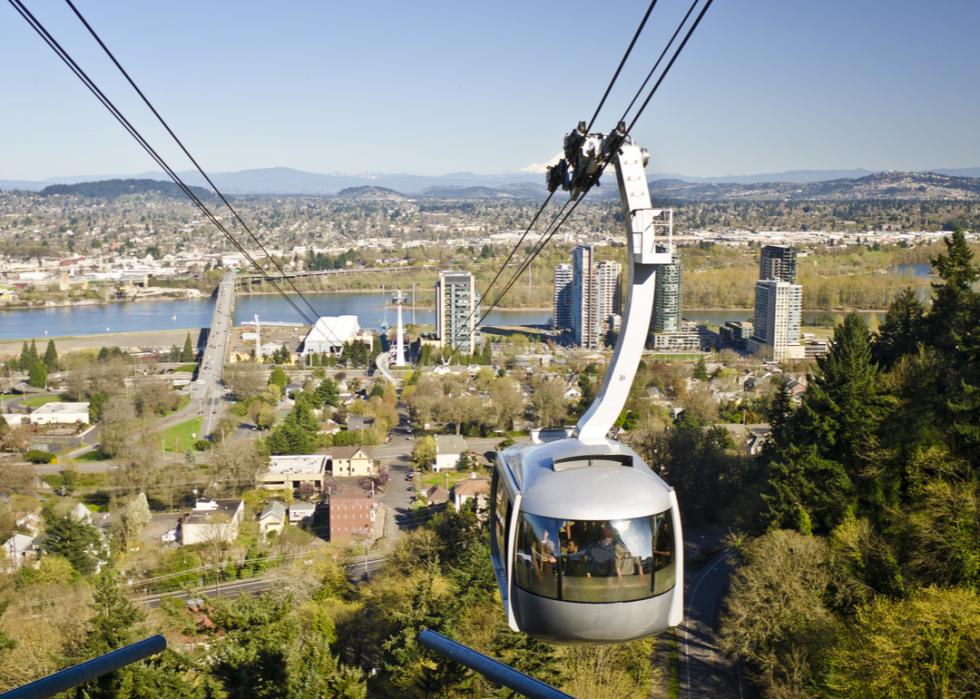
#5. Oregon
- Percent of income donated: 4.6%
- Volunteer rate: 33%
- Average volunteer hours: 50.3
Oregonians have increased their contributions to nonprofits over the past decade by 66%, according to the Oregon Community Foundation. Of those nonprofit donations, the most go toward educational nonprofits, which received a combined $653,196,996, or 26.51%. Portland, Oregon's largest city, is known for its residents taking on social justice causes, and that same spirit of caring translates to volunteering: The city ranks fifth among the top volunteering cities in the nation, at a rate of 44.3% according to the 2018 Volunteering in America Report.
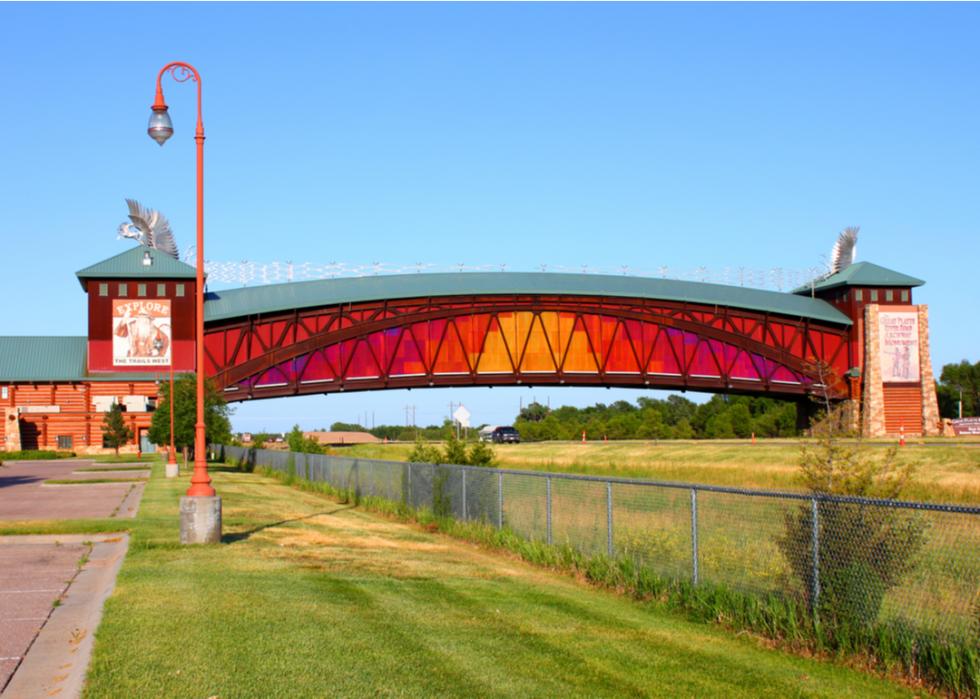
#6. Nebraska
- Percent of income donated: 4.1%
- Volunteer rate: 42%
- Average volunteer hours: 47.9
Residents of Nebraska are very charitable: 84% of Nebraskans reported charitable contributions that averaged $5,264, according to a 2019 report on Nebraska's nonprofit sector. Nebraska also boasts a higher rate of nonprofits per capita than the overall average in the U.S., many focused on human services.

#7. Minnesota
- Percent of income donated: 4.1%
- Volunteer rate: 40%
- Average volunteer hours: 45.2
While the state ranks seventh for its overall generosity, the Twin Cities of Minneapolis-St. Paul claimed the #1 one spot of volunteers ranked by cities in the nation, according to the 2018 Volunteering in America Report, with 46.3%. In trying to answer the question of why the Cities have such a high amount of volunteering, the Star Tribune reported that Minnesota has an “infrastructure” that facilitates volunteering and makes it easy for people to do.
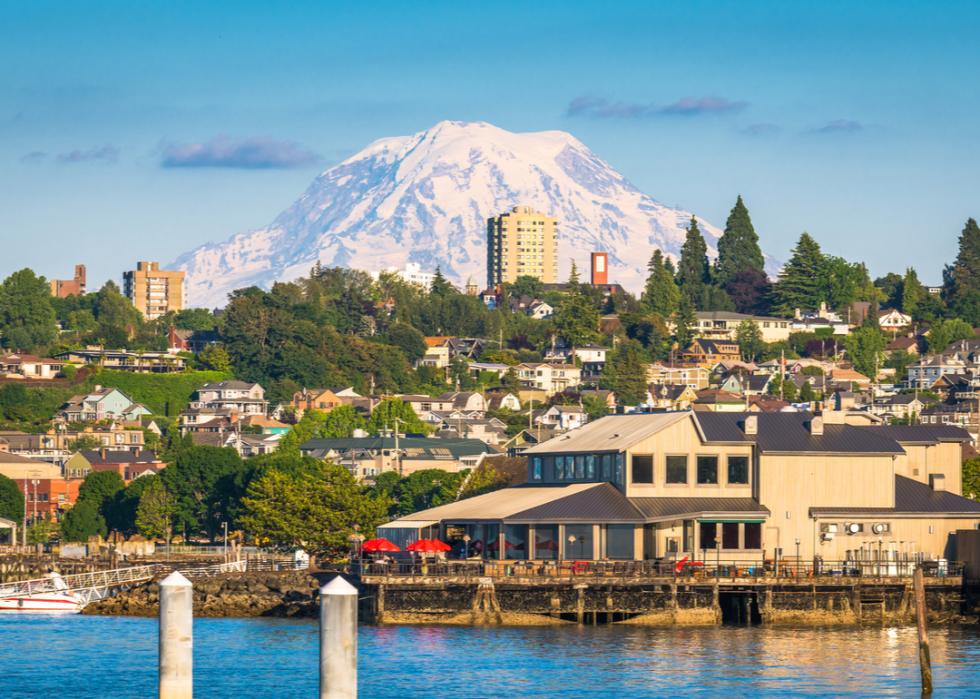
#8. Washington
- Percent of income donated: 4.1%
- Volunteer rate: 36%
- Average volunteer hours: 54.5
The COVID-19 pandemic forced operations that rely on volunteers to adjust their usual practices, keeping people safe with new protocols, fewer interactions, or pausing volunteer work altogether. With vaccinations on the horizon, those same operations are now planning on how they'll make the most of their returning volunteers. And while the pandemic has curtailed the standard in-person volunteer opportunities, it's also brought out new forms of community spirit: An ambitious undertaking at Seattle University to vaccinate residents is relying heavily on hundreds of volunteers working together to make vaccinations happen, from inputting data to sanitizing pens between uses.
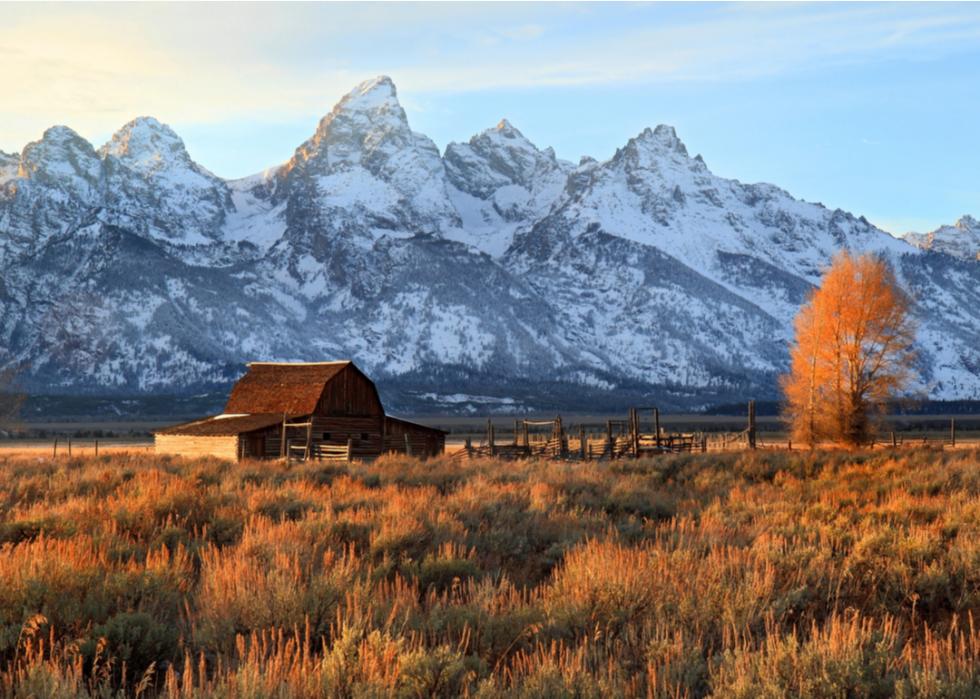
#9. Wyoming
- Volunteer rate: 37%
- Percent of income donated: 4.2%
- Average volunteer hours: 45.3
Many, but not all, states saw an increase in charitable giving in 2020, meaning that the COVID-19 pandemic actually resulted in more donations, not fewer. But none can match the increase in Wyoming, which went up by 103%, according to TOP Data. The state's average charitable donation was $726 in 2020. The same report found that 74% of millennials gave to charity in 2020.
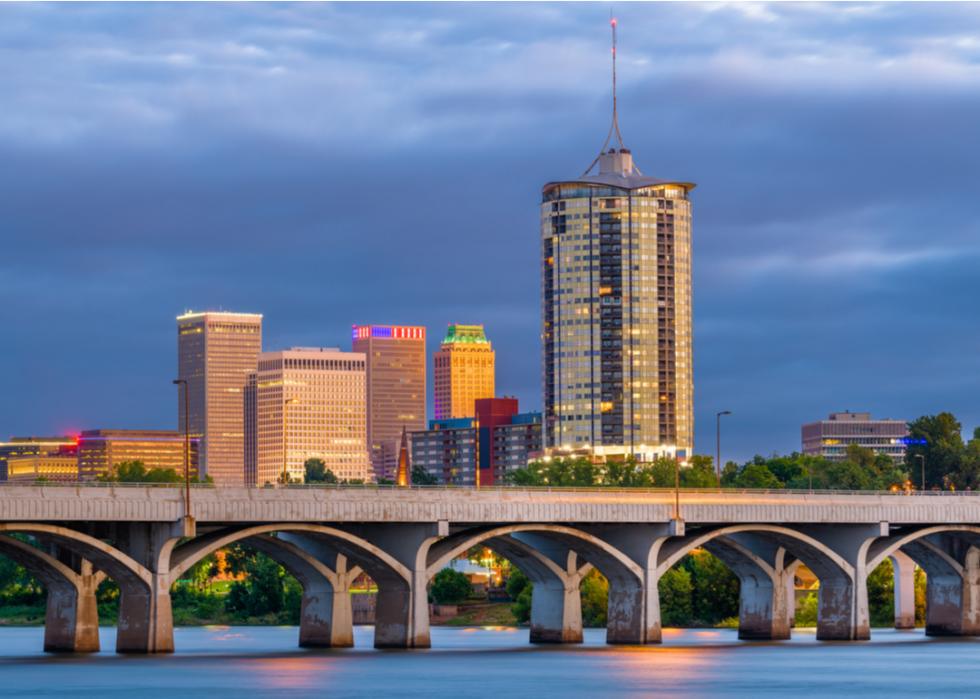
#10. Oklahoma
- Volunteer rate: 30%
- Percent of income donated: 5.6%
- Average volunteer hours: 43.6
A 2015 study found Oklahomans spent 94.22 million hours volunteering, the equivalent of $2.6 hours of labor. The state is currently looking for volunteers to help its COVID-19 vaccination efforts, and other opportunities abound, from working mobile pantry food busses to planting community gardens to helping kids with reading.



